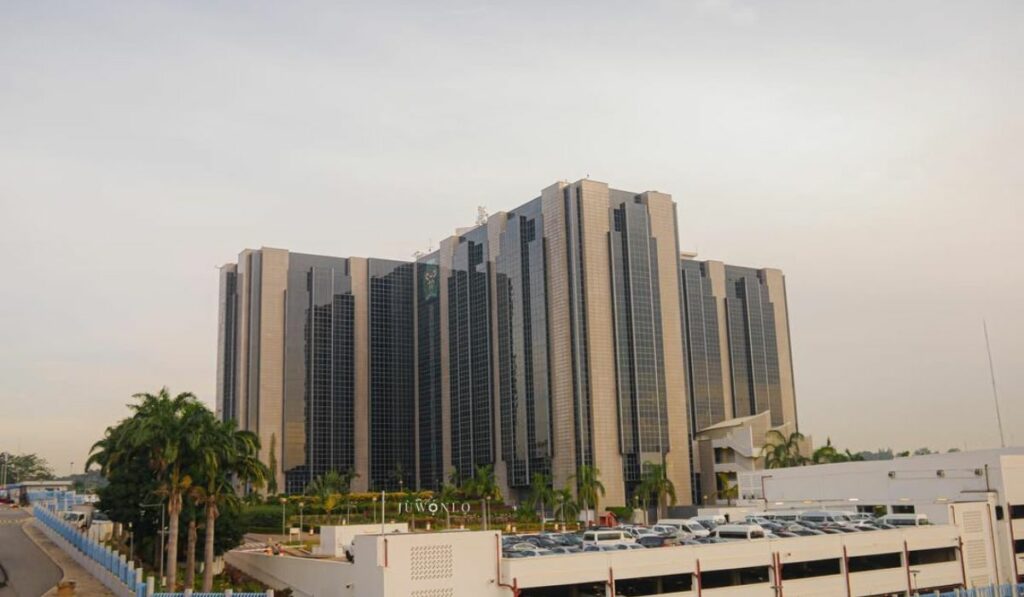The federal government has accused the Central Bank of Nigeria (CBN) of mismanaging N2.73 trillion in interest payments from Ways and Means advances, raising serious concerns over inconsistencies in the handling of government finances.
Under reference number AuGF/AR.2021/01 and dated July 31, 2024, the Auditor-General, Shaakaar Chira, submitted to the National Assembly the Federal Government’s consolidated financial statement for the year ending December 31, 2021, which included the allegation.
Read also: CBN and SEC approve Access Holdings’ N351 billion Rights Issue, paving way for global expansion
The controversy surrounding the N2.73tn Ways and Means interest
The dispute revolves around the Ways and Means facility, a short-term lending mechanism that the CBN offers the government to finance budget deficits.
According to the report, the federal government asserted that instead of releasing the N2.73 trillion in interest charges to the Consolidated Revenue Fund, the CBN kept the money “for its sole benefit.”
In addition to N4.4 trillion in Ways and Means advances, the CRF’s negative cash balance as of December 31, 2021, was N17.1 trillion.
The Financial Regulations of 2009 and the 1999 Constitution of the Federal Republic of Nigeria (as modified) both forbid taking money out of the CRF or overdrawn government accounts without permission.
No money may be taken out of the CRF without authorisation from an appropriation act or supplemental act, according to Section 80(2) of the Constitution, while Financial Regulations Paragraph 710 prohibits overdrafts and requires that any interest paid be reimbursed.
The CRF and four other ministries, departments, and agencies, according to the study, had overdrawn accounts worth N17.1 trillion, a sum that was not backed up by the necessary clearances or documents.
N9.41 trillion for reconciling domestic debt service, N4.45 trillion for Ways and Means withdrawals, and N483.97 billion for Paris Club loan returns were the components that made up the CRF’s negative balance. CPV coupon payments and deferred state loan deductions were other elements.
The report read, “The CRF negative balance of (N17,105,111,709,523.00) as at 31st December 2021 included actual Ways and Means advance of N4.4 trillion taken by Government and interest charged on it for the sole use of CBN as though the Ways and Means a loan from CBN funds or from any syndicated group of lenders.”
Nigeria government indicted CBN, ordered it to refund the 2.71trn interest
In response, the Federal Government of Nigeria claimed that the CBN had mishandled the Ways and Means facility, misrepresenting the funds as either a syndicated facility from domestic or overseas lenders or loans from its balance sheet.
It claimed that the apex bank had improperly kept the N2.73 trillion interest that was assessed on these advances and demanded that the CRF receive prompt reimbursement.
The report noted, “The interest charged on Ways and Means by CBN was misappropriated by CBN for its sole use whereas the Actual Ways and Means was not a facility from its funds or balance sheet, nor was it a syndicated facility from a group of local and foreign lenders.
“CBN must, therefore, refund to the Federal Government of Nigeria the interest of N2.73 trillion it cornered for its sole use as of 31st December 2021.”
The government further directed that, in contrast to other aspects of the overdraft that the Debt Management Office is handling, the interest charges should not be securitised.
Until the federal government produced proof of appropriate approvals and documentation for the transactions, the Office of the Auditor-General’s review insisted that the findings were still valid.
Read also: CBN unveils whistleblower website to tackle misconduct in Nigeria’s financial sector
The Auditor-General fingered the Accountant-General
The Auditor-General suggested that the Accountant-General of the Federation explain the N17.1 trillion overdraft to the National Assembly’s Public Accounts Committees and make sure that the penalties listed in paragraph 3106 of the Financial Regulations were implemented for unauthorised payments made with public funds.
The audit report characterised the situation as a serious risk to public finances and ascribed the anomalies to flaws in the Office of the Accountant-General of the Federation’s internal control procedures.
It issued a warning that the government was subject to needless financial difficulties due to the unapproved financing of expenses and unneeded interest payments.














